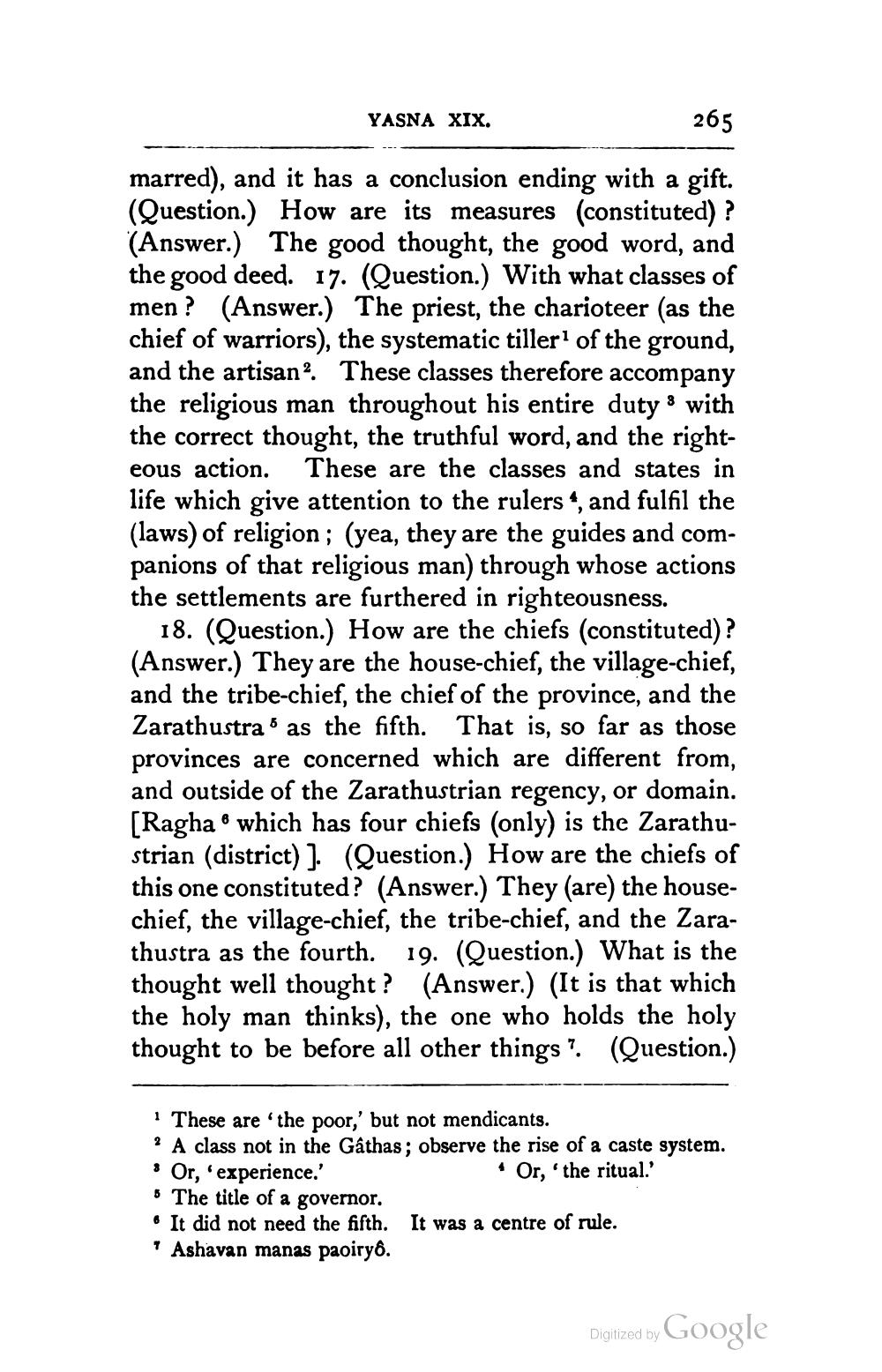________________
YASNA XIX.
265
marred), and it has a conclusion ending with a gift. (Question.) How are its measures (constituted) ? (Answer.) The good thought, the good word, and the good deed. 17. (Question.) With what classes of men? (Answer.) The priest, the charioteer (as the chief of warriors), the systematic tiller of the ground, and the artisan?. These classes therefore accompany the religious man throughout his entire duty : with the correct thought, the truthful word, and the righteous action. These are the classes and states in life which give attention to the rulers“, and fulfil the (laws) of religion ; (yea, they are the guides and companions of that religious man) through whose actions the settlements are furthered in righteousness.
18. (Question.) How are the chiefs (constituted)? (Answer.) They are the house-chief, the village-chief, and the tribe-chief, the chief of the province, and the Zarathustra as the fifth. That is, so far as those provinces are concerned which are different from, and outside of the Zarathustrian regency, or domain. [Ragha which has four chiefs (only) is the Zarathustrian (district) ]. (Question.) How are the chiefs of this one constituted? (Answer.) They (are) the housechief, the village-chief, the tribe-chief, and the Zarathustra as the fourth. 19. (Question.) What is the thought well thought ? (Answer.) (It is that which the holy man thinks), the one who holds the holy thought to be before all other things ?. (Question.)
1 These are the poor,' but not mendicants. ? A class not in the Gathas; observe the rise of a caste system. • Or, experience.'
• Or, the ritual.' 6 The title of a governor. . It did not need the fifth. It was a centre of rule. * Ashavan manas paoiryo.
Digitized by Google
Digitized by




